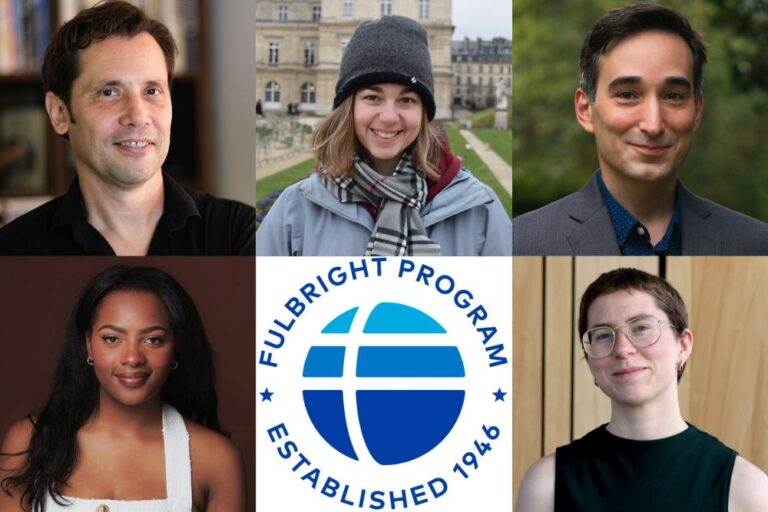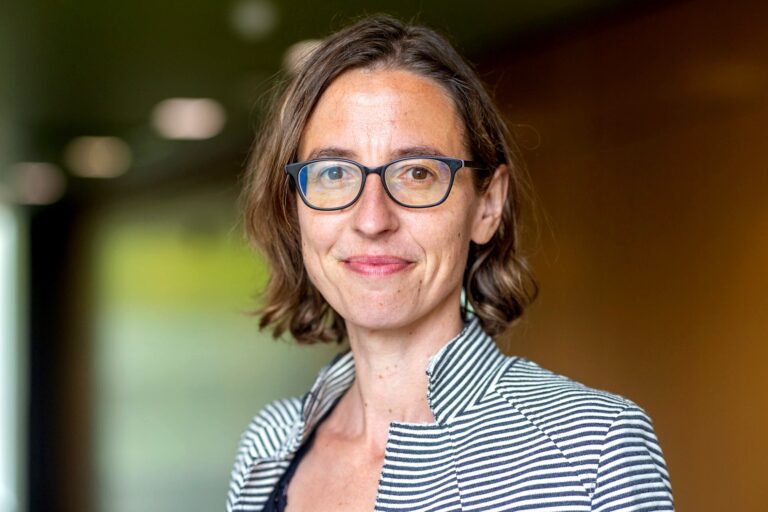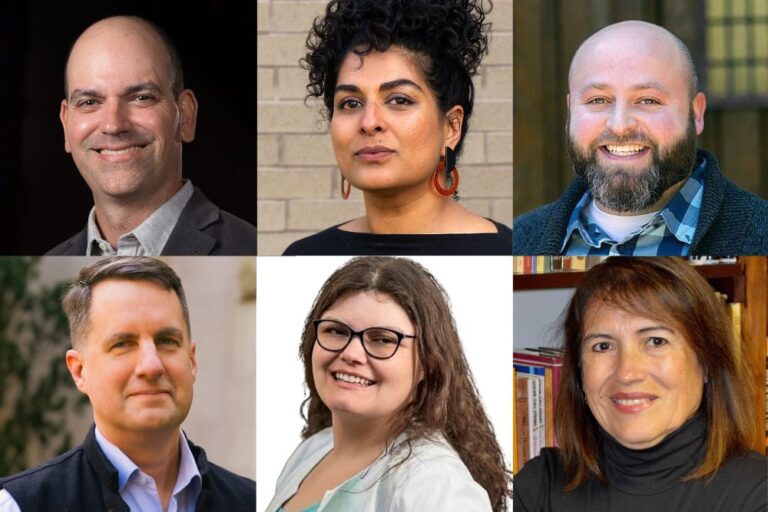Jonathan Choti, Associate Professor of African Languages and Cultures in the Department of Linguistics, Languages, and Cultures at Michigan State University, recently traveled to Kenya to lead a workshop focused on revitalizing that country’s indigenous languages, many of which face extinction due to the predominance of English and Swahili in education, government, and media.
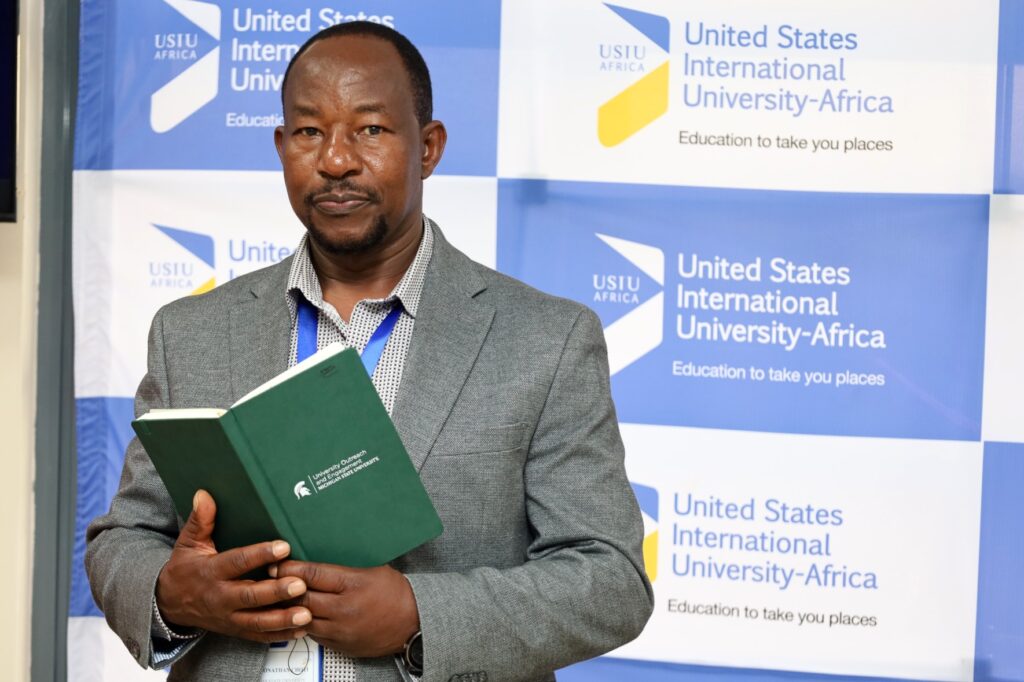
Held at the United States International University–Africa (USIU-A) in Nairobi, the event, titled Revitalizing Heritage: Linguistics Workshop on Kenyan Indigenous Languages, aimed to equip students and early-career scholars with the tools, knowledge, and motivation to help preserve Kenya’s approximately 40 ethnic languages. The workshop was co-led by Quin Awuor, Assistant Professor of Applied Linguistics at USIU-A.
Choti delivered the keynote address at the event, which brought together 85 in-person attendees and 42 virtual participants.
“The workshop exceeded my expectations, with more than 100 participants from 20 Kenyan universities, both private and public. It was one of the most rewarding training workshops I have ever been part of.”
Dr. Jonathan Choti
“The workshop exceeded my expectations, with more than 100 participants from 20 Kenyan universities, both private and public,” Choti said. “It was one of the most rewarding training workshops I have ever been part of, and I do appreciate the opportunity and the privilege of delivering the keynote speech. The audience’s astounding response signaled that more of such trainings are needed.”
Workshop participants explored a range of themes, including centering indigenous languages in scholarship, education, and media; preserving cultural identity through language; technology and language preservation; policy and advocacy for language rights; Indigenous languages and oral traditions; and language revitalization strategies.
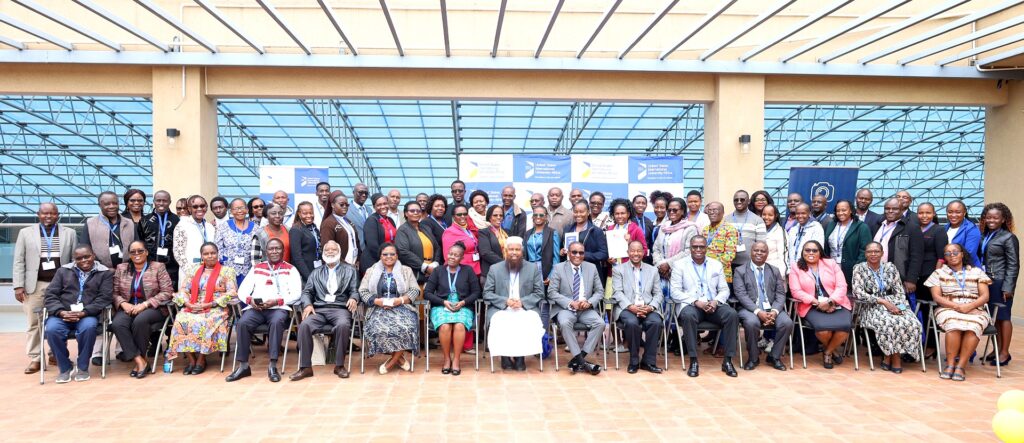
The workshop offered training in both theoretical and practical approaches to language preservation. Topics included data collection and analysis methods for native languages, techniques for community-based language documentation, and strategies for applying digital tools to language learning and promotion. Participants also discussed curriculum development and scholarly publishing, with a focus on generating academic outputs that support the use of indigenous languages in education and public life.
“The training affirmed young scholars’ thoughtful projects and helped expand their view of linguistics research and its role in revitalizing Kenyan heritage,” Choti said. “The event created an opportunity for senior Kenyan linguists to mentor young scholars and emphasized the need to center structural aspects of Kenyan ethnic languages by creating projects focused on phonological, morphological, and syntactic grammars of these languages. Participants appreciated the idea of revitalizing heritage through research, teaching, and expanding usage of Kenyan indigenous languages. It was evident that the training was impactful, as participants requested a similar workshop in the future.”
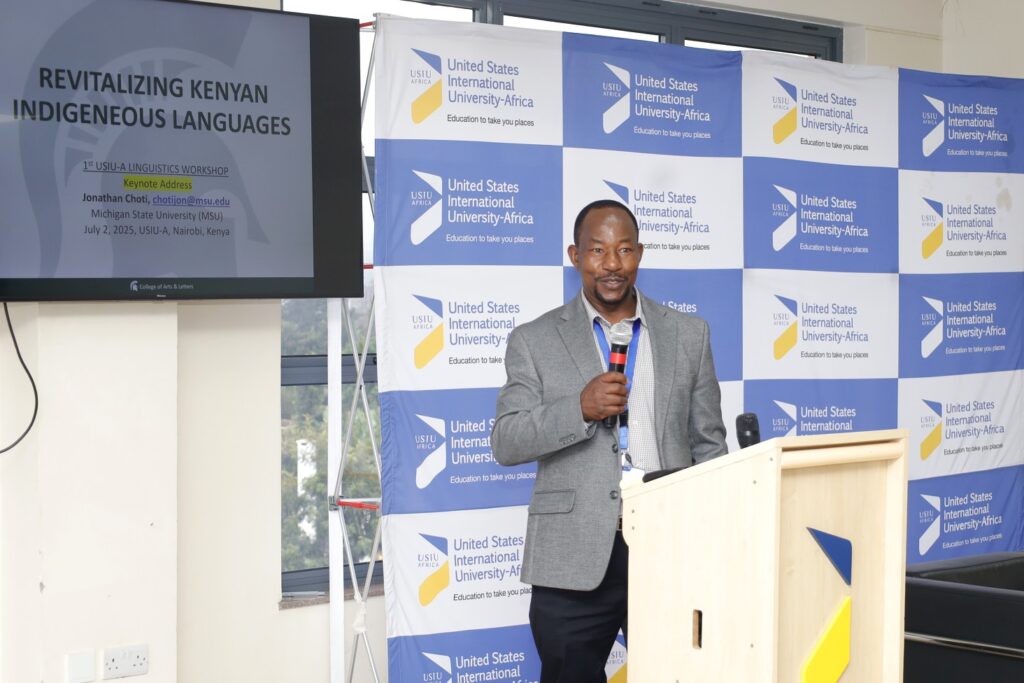
Choti’s work on the project was supported by a $5,000 grant from the Alliance for African Partnership (AAP) at Michigan State University.
At MSU, Choti teaches Swahili and courses on African cultures, languages, and literature through the Center for Integrative Studies in the Arts and Humanities at MSU. He also teachers for the Honors College and the Center for Gender in Global Context (GenCen). He leads MSU’s six-week education abroad program, Sustainable Community Development in Tanzania. His research focuses on the phonology and morphology of Bantu languages, Swahili, minority language pedagogy, and language documentation.
A recipient of numerous honors — including the Mid-Michigan Spartans Quality in Teaching Award, the Excellence Award in Interdisciplinary Scholarship, and a Lilly Fellowship — Choti continues to demonstrate leadership in interdisciplinary teaching, research, and international collaboration. The workshop in Nairobi reflects his long-term commitment to strengthening African linguistic and cultural heritage through locally grounded, globally informed scholarship.
By Austin Curtis and Kim Popiolek
